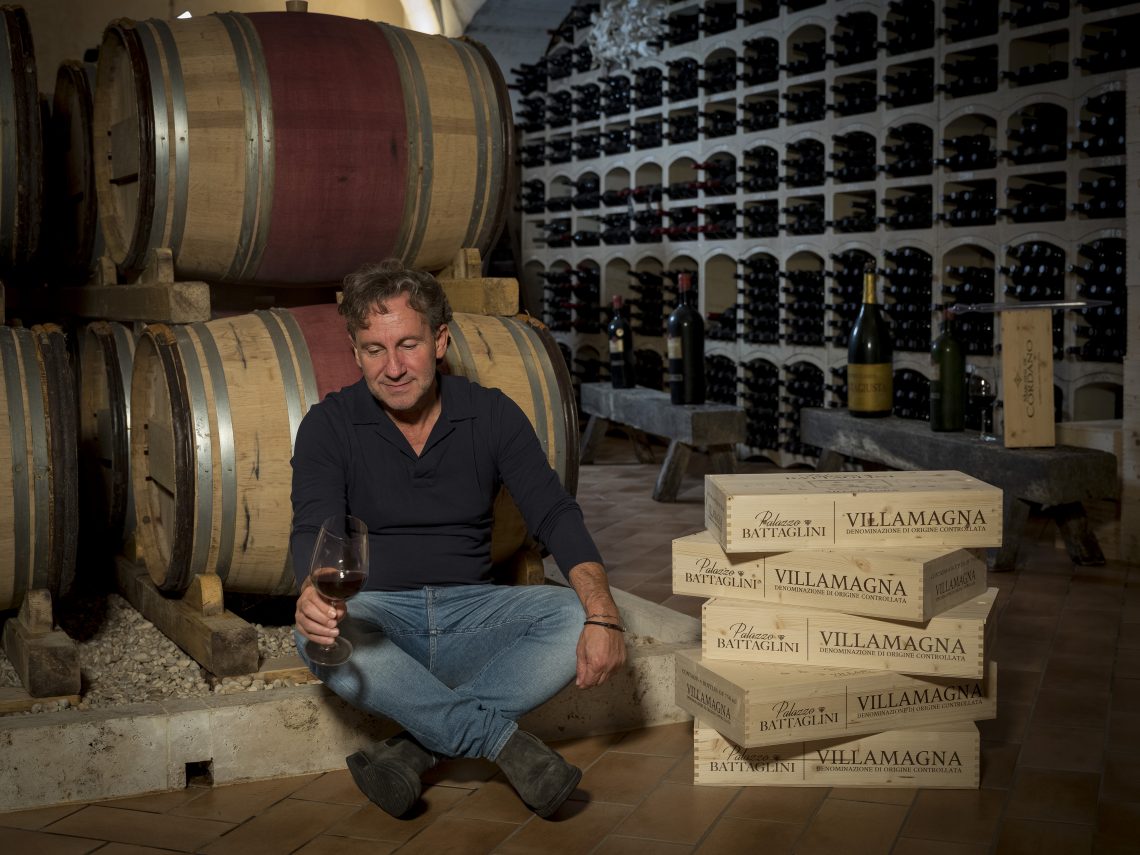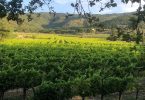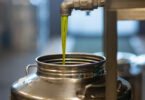The Wolf Post, supported by a Cultural Association, offers a professional service with free access, without subscription.
For this reason, a donation would also be a sign of appreciation for our work.
Vittorio Festa’s life is inextricably linked to the world of enology from an early age.
A love that has grown over time thanks to his father figure, a true icon of the wine world of the Abruzzo region. It is precisely thanks to the father that a great passion becomes a life project. Due to his untimely death, the young Vittorio collects the heavy inheritance and decides to make a change in his existence, continuing, with not a few initial difficulties, the path traced by his father.
Vittorio immediately understands that technical skills, without adequate marketing and correct communication, are worth little.
His experiences, with important production companies, are the confirmation that the path taken was the right one.
We meet him today with the values of yesterday and the knowledge and professionalism of modern oenology.
How and when was your passion for wine born?
Passion and Tradition are two words that go hand in hand and accompany my career path. My father was an oenologist, a strong character, a dreamer and a visionary who has always supported the producers and was a protagonist in the birth of most of the social wineries in the province of Chieti. One of the founders of the DOC Montepulciano and Trebbiano D’Abruzzo, my father had sensed the great potential that Abruzzo wine had. The figure of him was decisive for our region and his acumen led him to be one of the founders of the first consortium of the DOC Montepulciano d’Abruzzo (1968). In the 1970s, it was he who pushed for the creation of the social wineries. An important step was undoubtedly his battle of the Pergolone, a battle that allowed many producers to have great economic advantages, although, from a technical point of view, it caused quite a few criticisms. The intuition to make Abruzzo wine grow and to put the wine in the bottle and with the joined wineries took shape with the creation of the Consortium of cooperatives gathered in Abruzzo Citra (1973). Being a man of great intuition, my father had a marketing idea that only a man “modern in ideas” could have. He wrote a press release in which he stated that he would give a thousand bottles of Abruzzo wine to the one who scored the first goal at the World Cup and he did. Communication and marketing in the 1980s. This was my father, a man who has always acted for the common good and has brought advantages to the Abruzzo wine world, with many difficulties but with great determination. A man who, in order to carry out the social good, has, in some cases, damaged his figure. He was the founder of the Technical Oenological Center, our accredited analysis laboratory which, still today, represents a fundamental support to my profession.
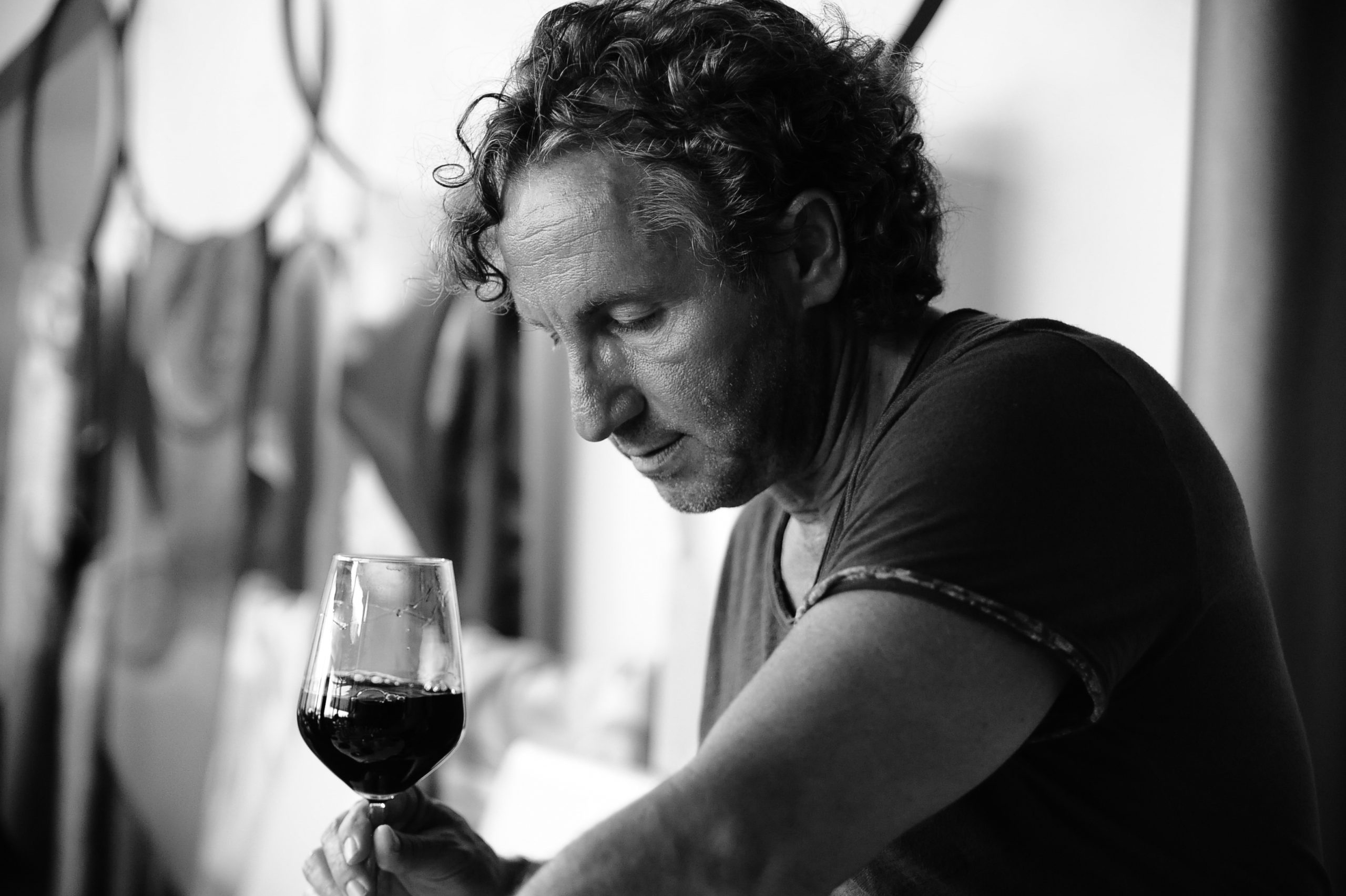
© Vittorio Festa
When did you decide that the oenologist would become your profession?
With the premature loss of my father, I had to face many difficulties and it was at that moment that I thought about completely changing jobs. Some friends of my father have left me alone, to the point of making me think I am inadequate for this job. I was ready to leave this sector, given the real professional betrayals. Despite this, the passion was strong and the important figures they supported, both from an emotional and work point of view, gave me the push to continue. Among them, I want to remember Mimì D’Auria. But then, an important event like Vinitaly and the successes that my cellars had in that year as part of this important event, gave me the boost I needed so much to go on. In addition to the personal satisfaction derived from these sensational results, I was also professionally appreciated by those who initially disappointed me. This event traced my career path, and it was the keystone and that led me to do what I loved most, that is, abandoning all the bureaucratic activities (registers, haccp ..). From here, I made my decision to become an oenologist, to continue what my father had started and done with so much passion and dedication. I could not follow his path due to the many changes that have taken place over the years, and that is why I have dedicated myself exclusively to wine which is the thing that makes me feel good and does not make me weigh the effort and sacrifices I make. everyday.
How important is it for an oenologist to empathize with the people who take care of that vineyard and those hills?
By now, the figure of the oenologist needs empathy but also and above all trust, and it is necessary to share with the producers one’s own philosophy of work and life so that everything works at its best. It is obvious that on the other hand, behind these more human and generic aspects, there must be, as in all activities, a continuous update on the issues. I love new challenges and experiments, only in this way both the winemaker and the producer can raise the bar of success every year (the secret of success lies in continuous research, with the aim of improving the quality of the wine produced and this is possible do only if you work with great love and passion). All this goes hand in hand with the awareness of working and maintaining the vineyards, entering into the perspective of attention to the system and here I insert a term sustainability that we will hear more and more often. Our attention is increasingly focused on the health aspect and the safeguarding / protection of our territory.
In the collective imagination of wine lovers, therefore, non-professionals, the sommelier is the best known figure within the “wine” chain while the oenologist works “behind the scenes”. How much, according to your experience, are the two figures (if they are), in opposition and how much, on the contrary, are they (if they are) complementary?
The two, sommelier/oenologist figures, are integrated into the wine supply chain. They are absolutely complementary even if they carry out different activities. The sommelier, (20 years ago) was a person in charge of service and food / wine pairing. Today, the FIS, AIS, FISAR trade associations must be acknowledged for having carried out a very important job, as they have enhanced the figure of the sommelier but have also had the merit of creating this sort of trait d’union between producer/consumer/ enthusiast. Some have even become opinion leaders, expert journalists who have made this training a real profession, a figure of the highest level. For the study path he undertakes, the oenologist certainly has the basis for being able to play a role in the entire supply chain. The oenologist is a technical figure, the guarantor of the brand, remained tied to more rigid schemes and, despite having all the skills to be able to manage all the tasks from the vineyard to marketing, he remained firm. Today, oenologists have entered into different fields such as the sale of equipment and adjuvants for oenology, and have agronomic skills so it is a complete figure up to dealing with marketing and communication.
How much has your profession changed, more or less positively, compared to its beginnings?
It has totally changed, but not just the profession. Our way of life connected to communication and technology has changed. Just think of the technology now existing in agriculture. It is possible to cross the vineyards and count the broken poles or the missing vines. This is just to talk about the vineyard. In the cellar, things have changed from an organizational point of view, with increasingly higher technologies, the hours of work are reduced from monitoring the grapes to bottling, automating many processes. All this, in order to ensure greater quality and reduce the use of adjuvants in wine. I mentioned two moments from the supply chain, but we could mention many other passages that have improved. The main actors have not changed: grapes and man, the “raw materials” and determinants of the whole process. Everything else is just an accessory. Useful to work better, but all the equipment in the world is not enough to create a great wine: you will always need the greatest grape and its interpretation.
Pandemic and state of health of the wine sector (Italian and International), what can your current experience tell you?
“The true sailor can be seen with the stormy sea”. I have felt like a sailor since my father’s death. I have always had to make double the effort to prove my skills. Italy has already experienced dramatic moments in the past, just think of the methanol scandal to get an idea of what the wine sector has had to endure and the resulting damage. Despite everything, there has been a true renaissance of Italian wine, a solid and shared brand for the benefit of the entire national wine system, which has strengthened the presence abroad of “Made in Italy” wines. The Italian know-how on controls in wine and food is a reference in the world. All this, also thanks to the desire of Italian producers to always get involved, to embark on new challenges and not only for greater income but only for the passionate desire to improve and offer an ever better wine. The pandemic has certainly slowed the path but cannot stop it. Working with winemakers you can never stop, even with the pandemic we have never stopped with the work in the vineyard and in the cellar. Wine, like the vine, is a living material and requires continuous care and attention. With many problems, including economic ones, but we have never stood still. The farmer is a real war machine and thanks also to the entry of the new generations, who have entered various companies and the tenacity with which the protagonists still do their work, we have moved forward. I would just add that, in such an exceptional moment, the bureaucracy should have simplified some steps. Perhaps this has been lacking and not only in agriculture.
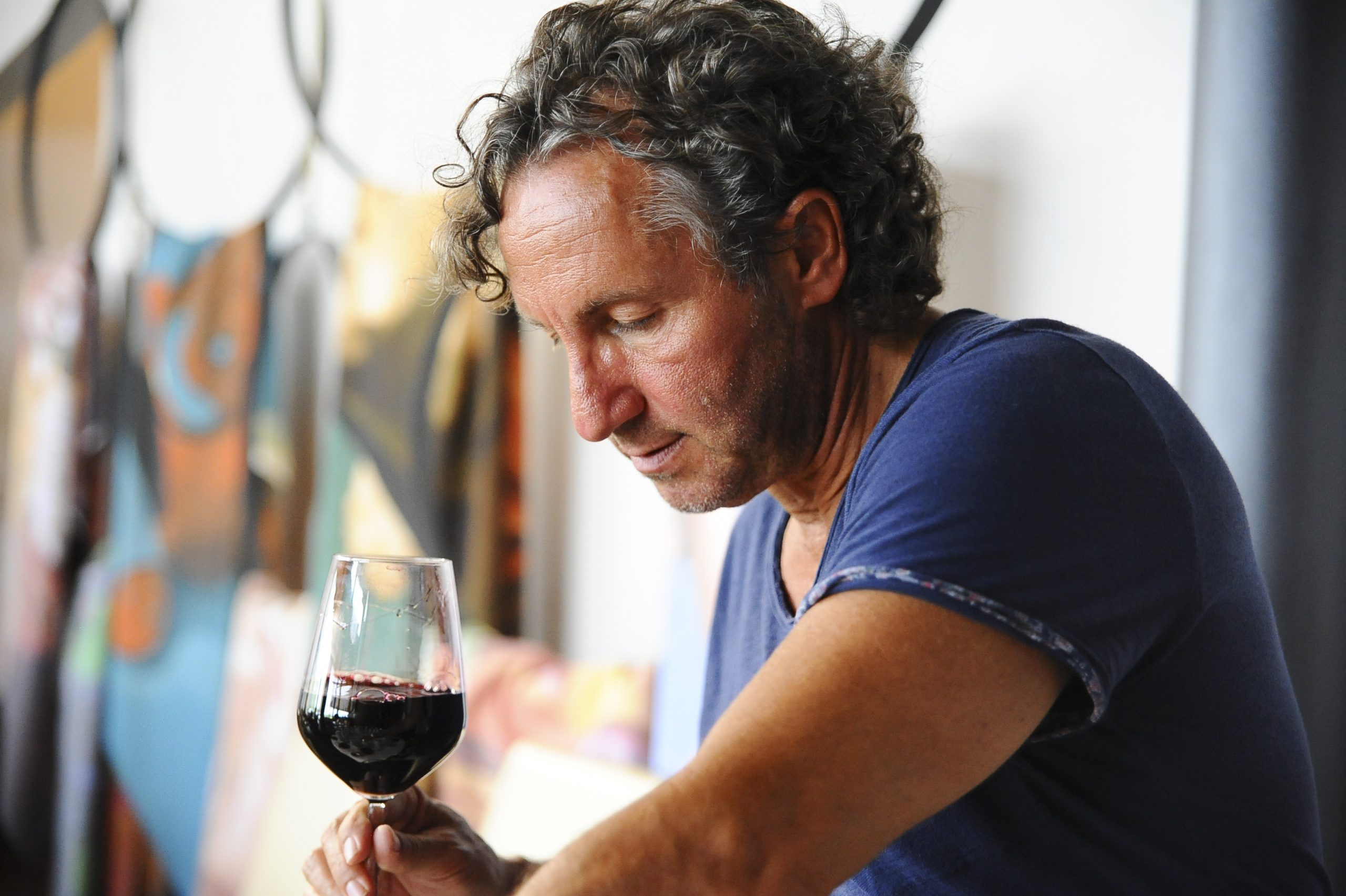
© Vittorio Festa
The winemaker is also a controversial figure, acclaimed by most and criticized by others. You are accused of “creating” wines that must meet the canons of the guides, in short, please everyone. Fantasies, or is there, in some cases, a basis of truth?
At the base of the work of the companies there are different characteristics, one the raw material that determines the different choices and the paths taken. The second aspect, the taste and the work philosophy of the producer according to the organic, biodynamic trend and the oenologist gets in tune with the team and merges with the ideas and understand them and have the sensitivity to interpret the producer’s ideas and make so that they coincide with the needs and tastes of the consumer. Personally, I work by meeting the ideas of the producer and together we make the wine come out with personalized characteristics. In my opinion, constructive and lasting work must come from the group and not from the individual. A tailor-made wine like a tailored suit. I have always tried to make wine that reflects the producer as the wine is his identity and must tell his story. Some awards come regardless, I believe that authentic work always rewards, even if in longer times and certainly with more difficulty. The most satisfied producer is the one who takes home the award for the famous winemaker or the one who has the wine he created and wanted with the support of the winemaker?
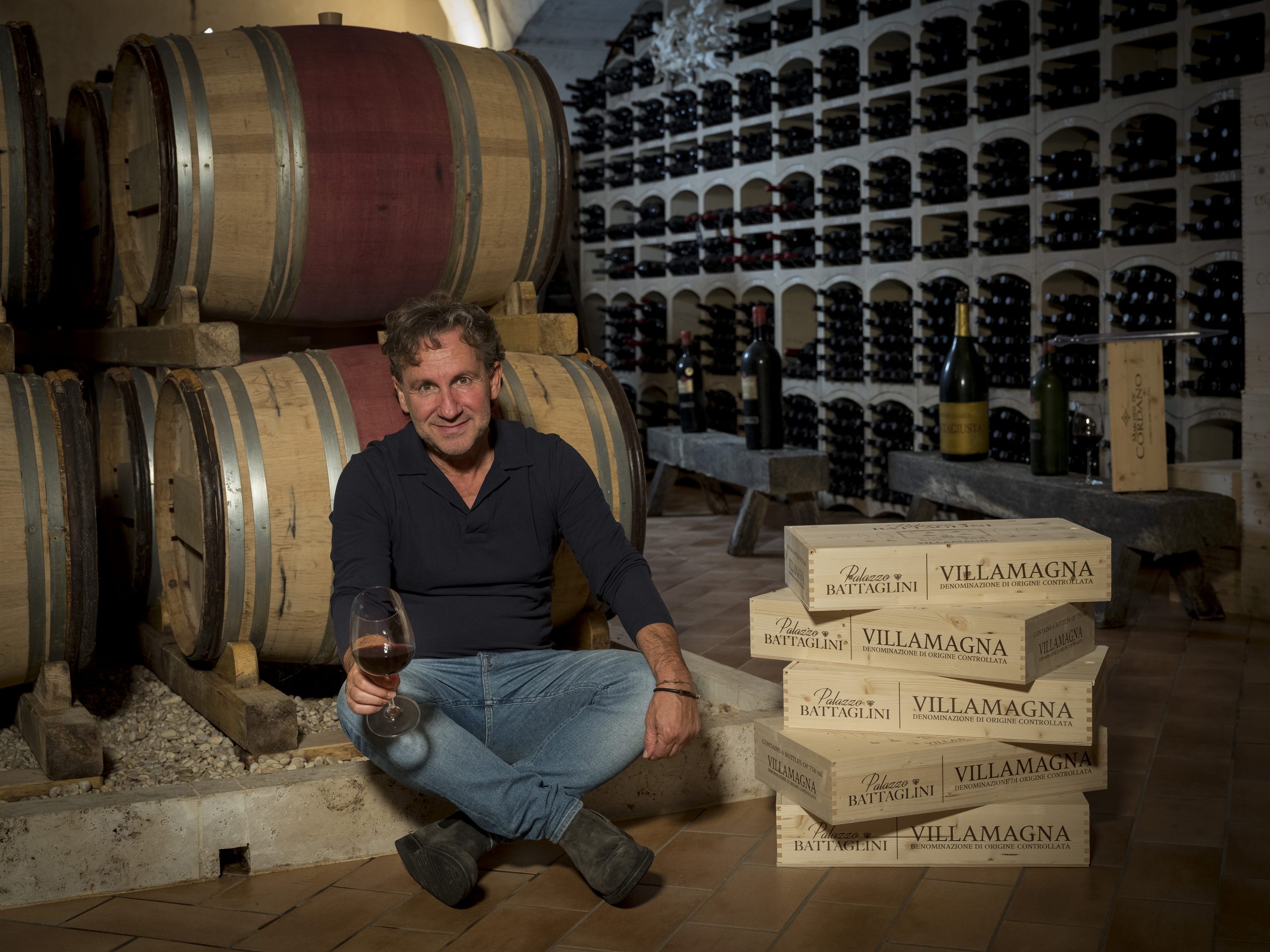
© Vittorio Festa
One of your merits and flaws, professionally speaking.
Altruism: merit and defect.


